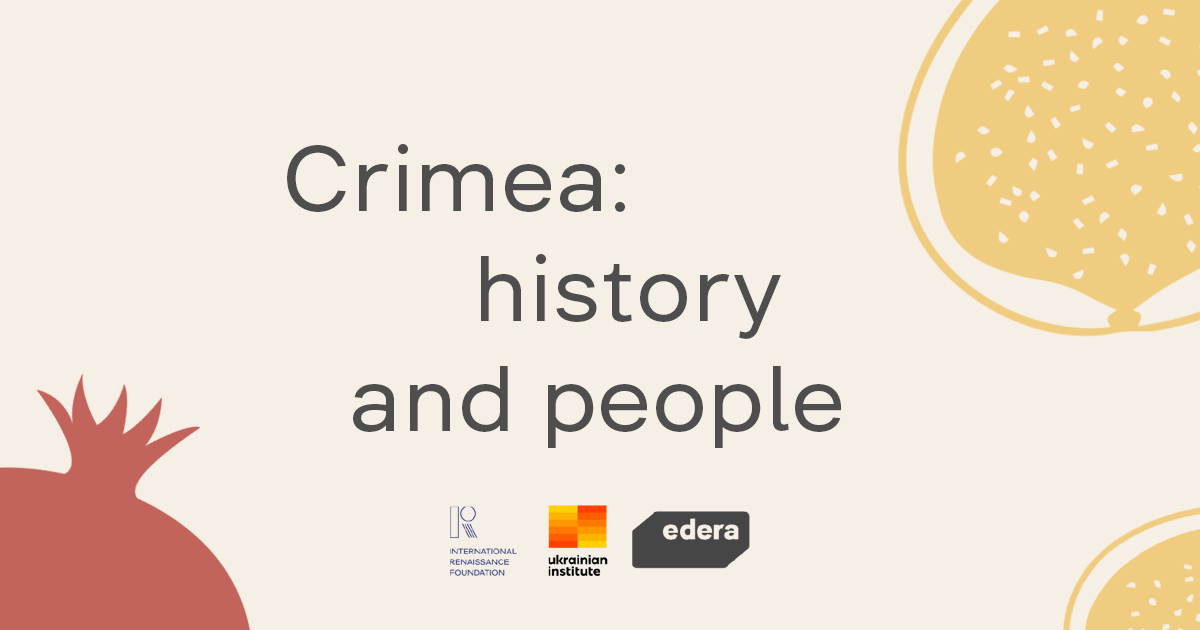The first English-language course about Crimea that encompasses the story of its first democratic Muslim republic, the ethnic cleansing methods of the Soviet Union against the Crimean Tatars, and how this policy destroyed their culture, rewrote history, and almost erased their identity from the peninsula. Designed to dispel Russian imperial narratives, this course will provide you with the all-you-need-to-know about the peninsula often caught at the center of global politics.
“Crimea: History and People” is a series of 12 video lectures that reveal the past and present of Crimea and Crimean Tatars, a Turkic ethnic group, who are the indigenous people of Ukraine. The course was designed by Crimean Tatars, Ukrainian and Turkish scholars and is available for free on the international education platform Udemy .
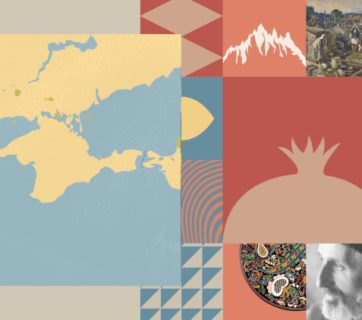
Crimea has made important appearances in the broader region throughout history. During Antiquity, Greek colonies appeared in Crimea to supply food resources to the birthplace of Western civilization – Greece. The Crimean peninsula remained a central point on the Silk Road connecting Asia and Europe in the following centuries. In 1856 the peninsula was a battleground of the famous Crimean War that marked a turning point for the economy of the Russian Empire and became emblematic of introducing modern technologies to the military sphere.
In 1945, the Yalta Conference, which established the post-WWII international order, was held on the peninsula. Indeed, the peninsula found itself at the center of world politics and international trade throughout its history. Nevertheless, these are only fragments of the lasting history of Crimea. It neglects the story of its indigenous people, the Crimean Tatars, an ethnic group that dominated the peninsula's population from the 15th to the 18th centuries and whose culture and history are inseparable from the history of the place.
In the academic sphere, Crimean Tatar studies remain overlooked. Treated rather as local history, research was often localized within the Crimean Peninsula and its academic and cultural institutions. As a result, scholars and cultural workers are facing the need to make the story and studies of Crimean Tatars more transnational and to discuss it within the history of Ukraine and the Black Sea region.
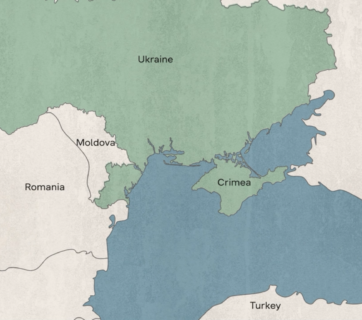
A quick search on Google reveals how few learning resources in English are available on the history of Ukraine, not to mention on Crimean Tatars. The Ukrainian Institute understood the need to answer questions about the past and present of Crimea through the perspective of its own indigenous peoples. Therefore, with support from the International Renaissance Foundation and in cooperation with educational studio EdEra, the Ukrainian Institute launched the first online course about Crimea and its indigenous people in English: "Crimea: History and People." The online course is an engaging academic course created by scholars that provides the possibility to learn about historical processes on the peninsula from the comfort of one’s living room.
In order to keep the videos informative but short and engaging, the scholars designing the course structured it as a broad overview, starting from the Golden Horde, XIII century, to Crimea's occupation by Russia in 2014. Therefore, the course is not tasked with presenting the history of Crimea or Crimean Tatars in detail but to address certain important topics and questions that were often overlooked due to the Russian colonial approach towards the history of Crimea.
Russia comes for Crimean Tatars in occupied Crimea once again
As the history of the Crimean Tatars is intertwined with Ukrainian history, it would be fruitful to watch this course and the course on Ukraine, titled "Ukraine: History, Culture, and Identities" which also is available on the Udemy platform for free. Numerous topics from both courses, especially on Cossack people, modernization, and the dissident movement within the USSR, complement each other.
The story of the Cossacks is critical in understanding the history of Ukraine. Their military culture was formed in close relations with the culture of Crimean Tatars, whose military might had been widely recognized and celebrated during the XV-XVII centuries.
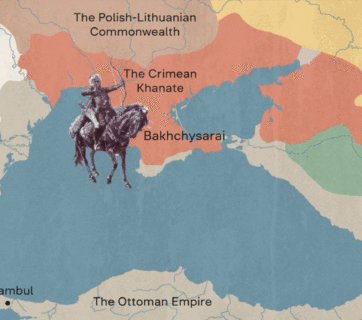
The other important theme is Crimean Khanate. Although the level of independence of the Crimean Khanate from the Ottoman Empire during different periods of its existence has been debatable among scholars, it is a fact that the Crimean Khanate existed for more than 300 years, which makes it the longest-lasting state of Chinggisid. Notably, Crimean khans tried to preserve their independence and actively engaged in foreign policy.
Nevertheless, some topics are missed in the course, including one about the social and economic structure of the Crimean Khanate. Due to the issue's complexity, there was no possibility to discuss the involvement of the Khanate in the Genoese and Ottoman slave trade in this short course. This topic requires a longer and very in-depth discussion about the economy of not only the Khanate but also Anatolia and Europe. Also, this topic as well as others in the history of Crimean Khanate is understudied. The story of the Crimean Khanate is very important and promises to be a fertile ground for future researchers.
The course shows Crimea in the context of its relationship between two empires: the Russian and Ottoman Empires. It tells about the first democratic Muslim republic established by Crimean Tatars in 1917. Later, it also discusses the Soviet policy of ethnic cleansing towards Crimean Tatars and how this policy destroyed physical markers of Crimean Tatar culture, rewrote history, and erased Crimean Tatar identity from the peninsula, claiming Russianness of the Crimea.
One of the most important parts of the course is the story of Crimea after 1991. This part reveals the domestic and foreign policy challenges of the newly independent Ukrainian state and the Crimean factor in Russian-Ukrainian relations, which can provide insight on the situation today. Finally, the course gives insights into the traditions, arts, literature, and cuisine of the Crimean Tatars; the student may even try to cook the easily recognizable Crimean Tatars dishes using the provided recipes. The culture of the Crimean Tatars, which is an integral part of contemporary Ukraine, is rich and modern.
The course presents the past and present of Crimea, once seen as a "paradise," a well-known resort, and now a place devastated by war and turned into a military base by Russia. By taking this course, you will learn more about the Black Sea region and Central and Eastern Europe. It will help you to see history of the peninsula in a more complex and nuanced way, navigate through politics and be able to contest the existing myths about Crimea, and understand the peculiarities of international relations in the region now.
This course equips you with the deeper historical background of contemporary events to understand how particular interpretations of the past shape modern politics. Finally, this course helps you develop a broad and grounded understanding of the region, where the past is still very much alive in the present.
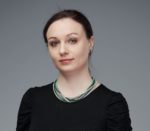
Dr. Oleksandra Gaidai is a Historian, lecturer, and the Head of Academic Programs at the Ukrainian Institute specializing in memory studies.
Author of “Stone Guest: Lenin Statues in Central Ukraine” (2016)
Find the course at Udemy
Related:
- Do Crimeans await liberation from Russian occupation?
- Russia tried to break the Crimean Tatars. Their non-violent resistance only grew stronger.
- Imaginary “terrorists” with no terror acts: Russia’s collective punishment of Crimean Muslims
- Russia comes for Crimean Tatars in occupied Crimea once again
- Deportation, autonomy, and occupation in the story of one Crimean Tatar
- Transreading Ukrainian Poetry: the first course inspiring English writers through Ukraine’s literature
- Ukraine’s largest online education platform to launch course on disinformation (we helped create it)

